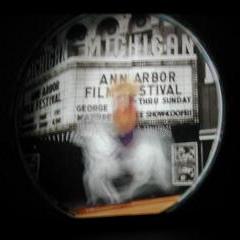 Opening animation during the 43rd fest | |
| Location | Ann Arbor, Michigan, United States |
|---|---|
| Language | International |
| Website | http://www.aafilmfest.org |
The Ann Arbor Film Festival is an annual film festival held in Ann Arbor, Michigan. [1] Established in 1963, it is the fourth-oldest film festival in North America (after the Yorkton Film Festival, 1947; Columbus International Film & Video Festival, 1953; and the San Francisco International Film Festival, 1957) and the oldest experimental film festival. It has become one of the premier film festivals for independent and, especially, experimental filmmakers to showcase their work. [2] The Ann Arbor Film Festival attracts over 3,000 entries from filmmakers in more than 60 countries, and distributes over $20,000 in cash awards. [3] As an early example of the traveling festival concept beginning in 1964, [4] each year the Ann Arbor Film Festival Tour presents a collection of short films at more than 30 art house theaters, universities, galleries and cinematheques throughout the world.
Contents
Created as an alternative to commercial cinema, the annual week-long festival focuses on promoting film as an art form. The Ann Arbor Film Festival also fosters the growth of emerging and established film and video makers. The festival is open to film and video of all lengths and genres, including experimental, narrative, animation, documentary, and genre hybrids.